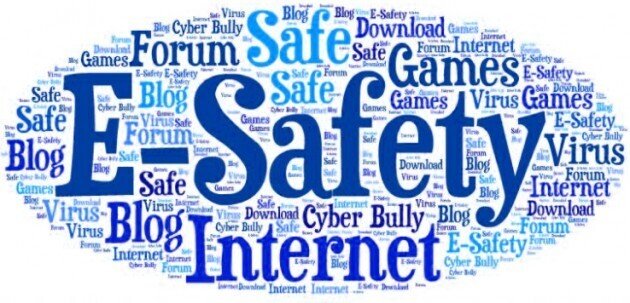Online Safety
E-safety
To make a report to one of CEOP's experienced Child Protection Advisors click on the report button below.
Has someone done something online that has made you or a child or young person you know, feel worried or unsafe?
Make a report to one of CEOP's experienced Child Protection Advisors
Staying Safe Online
Please do speak to us if you have any concerns about anything your child is doing or experiencing on the internet.
At Bridgtown Primary, we know how important staying safe is. Safe and responsible use of the internet is something which is growing and growing in importance – we hear so many shocking stories in the media – so please do take an active approach at home to promote your child’s online safety.
E-safety is a key part of our curriculum for both Computing and Personal, Social, Health and Citizenship Education (PSHCE).
As teachers and parents, we’re aware of the ways in which the use of social media, online gaming and the internet have become part of young people’s lives. We embrace the educational and social benefits of these new technologies and encourage responsible internet use. We’re also increasingly aware of the potential dangers and opportunities for misuse these technologies offer. Key to promoting online safety is open and honest discussions about the sites we’re using and the ways we’re using them – keep the dialogue open with your children about their internet use.
The following list contains lots of ideas and resources to help you to promote online safety – tell us if you know any more good resources.
The UK Council for Child Internet Safety (UKCCIS) has published a short, really helpful guide for parents and carers whose children are using social media. The guide includes practical tips about the use of safety and privacy features on apps and platforms, as well as conversation prompts to help families begin talking about online safety. It also contains pointers to further advice and support.
A family agreement is a great way to start a conversation with your whole family about how you all use the internet and discuss together how to behave in a positive way when online at home, at school or at a friends house. To support parents in creating a family agreement, Childnet International have put together some free advice and a family agreement template.
The Anti-Bullying Alliance has joined forces with internet security company McAfee to produce a series of videos on the topic, looking at how and why cyberbullying occurs; advice for children and young people to protect themselves and tips to pass on to parents about steps they can take at home.
This video from Common Sense Media gives students five basic rules for engaging with social media, including switching on privacy settings and turning off location tracking features that harvest data (parents might be interested to watch this Guardian video which explores this in more detail).
Common Sense has also created videos explaining how the most popular apps and sites work, so if you have ever found yourself wondering what Snapchat and Instagram are, these are a good place to start your education.
For younger children (Reception, Year 1 and Year 2), there are a number of picture books available online (and in print), including the tale of Digiduck, who shares a nasty picture of a friend, and Smartie the penguin, who runs into trouble with his new computer.
The ever-brilliant Horrible Histories tackles similar themes in a sidelong way, with Lady Jane Grey clicking a dodgy link and getting spammed; a prudish Victorian lying about his age and stumbling across scandalous content (ladies without gloves); and Guy Fawkes learning a valuable lesson about privacy settings as his plot fizzles out.
Other resources are:
www.childnet.com/parents-and-carers This site provides a whole host of useful ways to keep your child safe, with useful pages of advice, key advice, hot topics and tips for discussing online safety.
www.internetmatters.org Lots of useful advice for parents on a range of issues including cyber bullying, online reputations and online grooming. There is also a link to a useful ‘guide for parents’.
www.parentinfo.org Useful articles on a range of current e-safety issues and new apps and websites including Minecraft, Snapchat and ooVoo. New articles are added regularly.
www.ceop.police.uk The official site of the National Crime Agency’s CEOP (formerly the Child Exploitation and Online Protection Centre), containing advice and useful information and a link for reporting online abuse, exploitation or inappropriate images.
http://www.saferinternet.org More links and advice for parents and children including resources linked to Safer Internet Day.
www.nspcc.org.uk NSPCCs own website with lots of safety advice including video to watch with your children and a link to their work with O2.
www.mumsnet.com Lots of e-safety advice including a section specifically for preschool and primary.
The NSPCC Netaware website contains a range of information on social media advice and guidance for parents. Please follow the link to access these resources.








